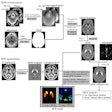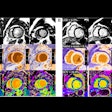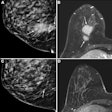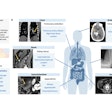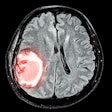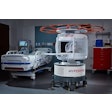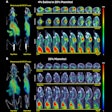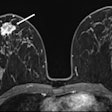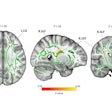Researchers at Dartmouth College are developing a way to combine dynamic contrast-enhanced MRI with near-infrared spectroscopy (NIRS) to improve the detection of breast abnormalities.
The new system design could help patients avoid unnecessary invasive biopsies, according to a study published in the February issue of Academic Radiology (Vol. 21:2, pp. 141-150).
Engineers designed a set of eight light-transmitting cables that can be adjusted to surround the breast with light tension. Patients lie on their stomach so that the breast hangs down through the holes of the MRI/NIRS breast coil.
Eight healthy volunteers and two cancer patients were evaluated. The new interface allowed the researchers to target lesions more effectively, setup time was faster, and images were of a higher quality, said lead author Michael Mastanduno in a statement.



.fFmgij6Hin.png?auto=compress%2Cformat&fit=crop&h=100&q=70&w=100)


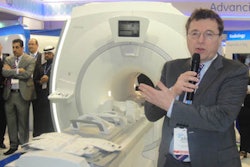
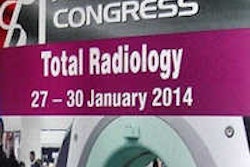
.fFmgij6Hin.png?auto=compress%2Cformat&fit=crop&h=167&q=70&w=250)



